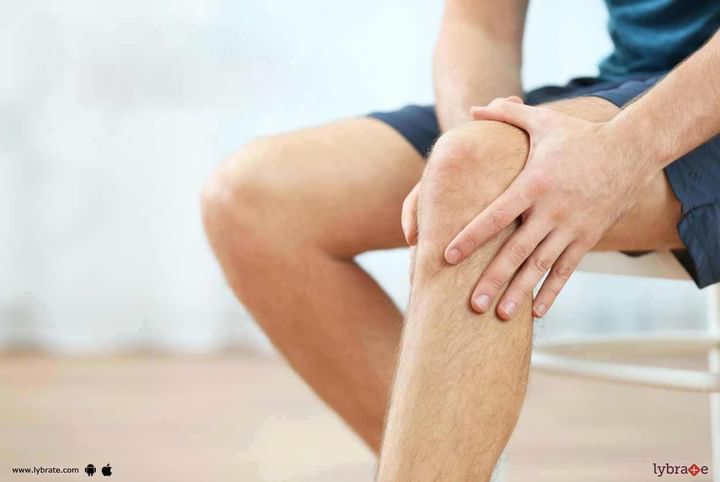Knee & Hip Pain - Ways To Manage Them Effectively!
The knee joint is made up of several elements including the kneecap, meniscus, connective tissue, tendons, ligaments, cartilage, and muscles. Damage to any part of the knee can cause chronic pain. Hip joint pain can also be the result of arthritis, bursitis, or an injury you've got while playing a sport or in an accident.
What can cause knee pain:
Fractures: These are caused by the breaking up of the kneecap due to falls or collisions.ACL Injuries: Caused due to the tearing of the anterior cruciate ligament (that connects the femur and the shinbone). Especially common in sportspersons such as footballers or basketball players.Meniscus tears: The meniscus or the rubber-like cartilage (that acts as a shock absorber) can be torn by sudden jerks or excess pressure.
Arthritis: The chief cause of lingering knee pain, arthritis itself can be of a number of types.
- Osteoarthritis, which is a result of deterioration of cartilages due to wear and tear
- Rheumatoid Arthritis, an inflammatory chronic disorder
- Septic Arthritis, causing pain, swelling and redness.
- Gout caused due to the development of uric acid crystals in the joints
How to deal with it:
- Exercise: Moderate to intense exercise is prescribed for one and all. This, of course, depends on one's overall health and age. If you are already suffering from joint pain, then you may want to go easy on the exercise with a focus on building muscle strength and foundation. If you are healthy, then some amount of daily exercise as a routine will keep those knees in prime working condition and well lubricated as well. Inactivity and a sedentary lifestyle can affect the knees very badly.
- Dealing with Load: Weight is a big one. Carrying around extra pounds and kilograms can be detrimental for your knees in the long run. Your knee is not equipped to handle the excessive weight. It already supports three to five times your weight when you get up and walk around or indulge in some mild jogging. One must be careful of those extra pounds to take the load off the knee and keep it from falling prey to damage.
- Do not Ignore: Warning signals such as chronic or acute knee pain should not be ignored. Remember to see a doctor or an orthopaedic specialist to find out if you have contracted an infection or if you may have suffered a fracture due to an injury.
Ligament Injuries-
The ligaments around the knee are strong. However, sometimes they can become injured. They may be stretched (sprained), or sometimes torn (ruptured). A ligament rupture can be partial (just some of the fibres that make up the ligament are torn) or complete (the ligament is torn through completely). The majority of knee ligament injuries are sprains and not tears and they tend to settle down quickly.
ACL injury and other ligament injuries can be caused by:
- Twisting your knee with the foot planted
- Getting hit on the knee
- Extending the knee too far
- Jumping and landing on a flexed knee
- Stopping suddenly when running
- Suddenly shifting weight from one leg to the other
These injuries are common in soccer players, football players, basketball players, skiers, gymnasts, and other athletes.
Ways To Manage Hip Joint Pain:
Always ask your doctor what you should and should not be doing, given the cause of your hip pain.
- Ice your joints: Holding ice to your hips will reduce inflammation of your joints. You should hold an ice pack to the affected area for 15 minutes several times a day. If you find that the ice pack is uncomfortably cold, wrap it in a towel and then place it on the pained area.
- Heat your joints if you have arthritis in your hips: Heating your joints can soothe the pain you feel. Consider taking a hot bath or shower, or soak in a hot tub if there is one available to you. You could also consider purchasing a hot pad that you can place directly on your hip. Do not use heat to soothe your joints if you have bursitis. Heat can cause hips affected by bursitis to actually become more inflamed.
- Get some rest: If you have injured your hip, the best thing you can do is to simply give your hip time to heal. Avoid anything that causes you to feel pain in your hip. Instead, grab an ice pack, a bowl of popcorn and watch some movies. You should give your hip a rest for at least 24 to 48 hours.
- Avoid high-impact activities: If you are in severe pain, chances are you won't feel like running or jumping anyway, but it is good to keep in mind that these activities should be avoided. High-impact activities will cause your joints to become more inflamed, thus causing you more pain. Instead of running, try taking a brisk walk, as walking has much less of an impact on your joints.
- Consider losing weight: The more your body weighs, the more weight your painful hip is burdened with supporting. Losing weight can help ease hip pain simply by removing some of that weight that stresses the cartilage and joints.
- Choose the right shoes: You should buy shoes that give you as much support as possible. Look for shoes that have great cushions, or have removable insoles so that you can add orthopaedics. The sole should have good shock absorption, should limit pronation (turning or rotating the foot) and will evenly distribute pressure along the length of your foot.



+1.svg)
